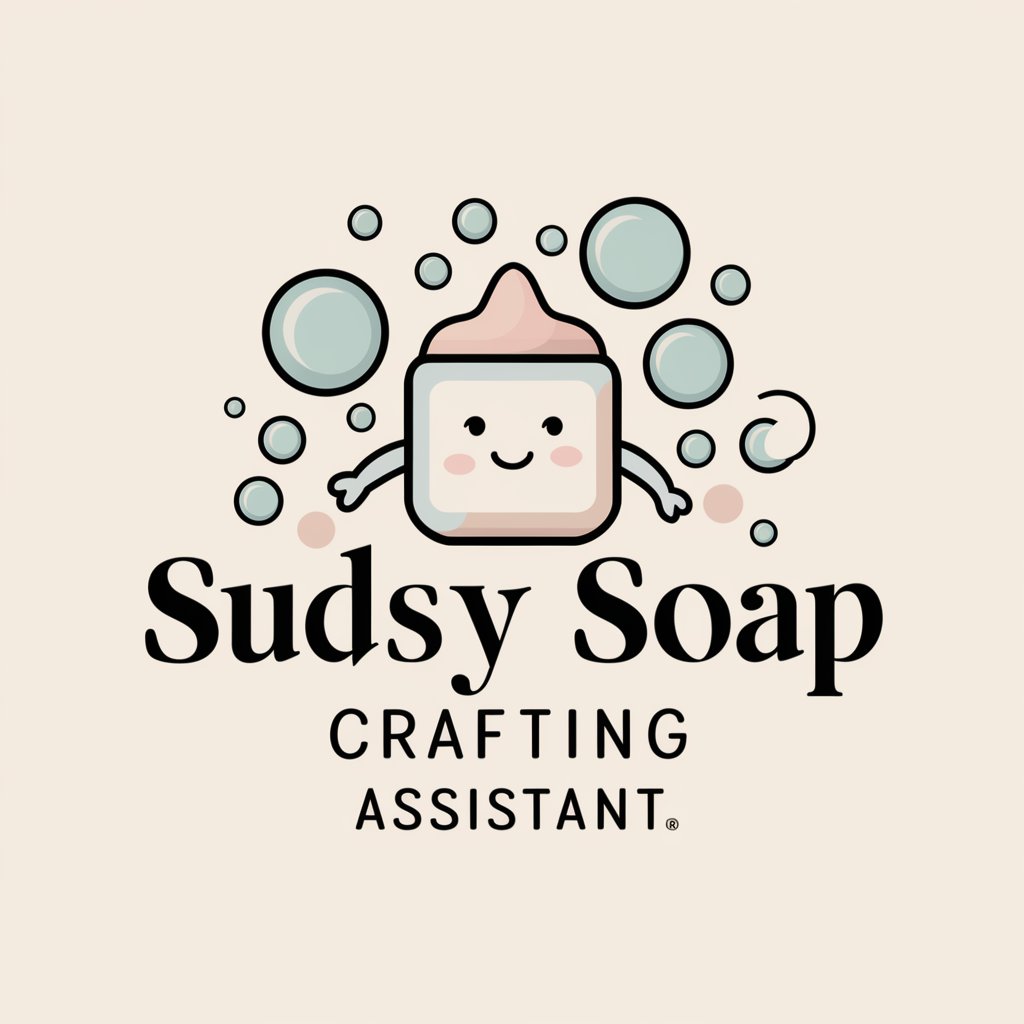
Dish Soap - Dish Soap Guide

Welcome! Need dish soap advice? I'm here to help.
Sparkling Clean with AI-Driven Advice
Can you explain the differences between liquid and gel dish soap?
What are the benefits of using eco-friendly dish soap?
How can I remove tough grease with dish soap?
What ingredients should I look for in a high-quality dish soap?
Get Embed Code
Overview of Dish Soap
Dish soap, commonly known as dishwashing liquid, is a specialized formula designed for cleaning dishes, cutlery, and cookware. Its primary function is to break down and remove food residues, grease, and stains from cooking and eating utensils. The effectiveness of dish soap lies in its surfactants, which reduce surface tension and lift dirt and oils off surfaces, allowing them to be washed away with water. Examples include removing tough grease from pans after frying or cleaning stubborn stains from porcelain dishes. Dish soaps often contain additional ingredients like fragrances and moisturizers to enhance the user experience and protect the skin. Powered by ChatGPT-4o。

Key Functions of Dish Soap
Grease Cutting
Example
Easily dissolving and removing heavy grease from frying pans and cooking pots.
Scenario
Cleaning up after cooking a greasy meal like bacon or stir-fried dishes.
Stain Removal
Example
Eliminating tough stains like turmeric or tomato sauce from dishes and plastics.
Scenario
Washing dishes after a meal that included heavily pigmented foods.
Gentle on Hands
Example
Formulas with added moisturizers to prevent skin dryness during prolonged use.
Scenario
Frequent dishwashing in households or professional settings like restaurants.
Multi-Surface Cleaning
Example
Effectively used on various materials like glass, stainless steel, ceramics, and plastics.
Scenario
Washing a diverse set of kitchenware, from wine glasses to plastic storage containers.
Environmentally Friendly Options
Example
Biodegradable formulas with natural ingredients for eco-conscious consumers.
Scenario
Users seeking sustainable cleaning solutions for their kitchenware.
Target User Groups for Dish Soap
Household Users
Individuals and families needing an effective and safe solution for daily dishwashing tasks. Beneficial for maintaining cleanliness and hygiene in home kitchens.
Professional Chefs and Kitchen Staff
Ideal for those in commercial kitchens where efficient, high-strength cleaning is required to handle large volumes of dishes and heavy grease or food stains.
Eco-Conscious Consumers
People who prefer environmentally friendly cleaning products. These users benefit from dish soaps with biodegradable and non-toxic ingredients.
Individuals with Sensitive Skin
Those who require gentle, skin-friendly dishwashing solutions. Formulas with moisturizers and without harsh chemicals are beneficial for this group.

How to Use Dish Soap Effectively
Start with a Free Trial
Begin your dish soap exploration by signing up for a free trial at a reputable website without the need for a login or subscribing to a premium service.
Select the Right Type
Choose a dish soap type suited for your cleaning needs. Options include antibacterial, gentle on hands, eco-friendly, and heavy-duty grease-cutting formulas.
Prepare Your Sink
Fill your sink with warm water and add a few drops of dish soap. The temperature and soap concentration should match the level of grease and dirt on your dishes.
Scrub and Rinse
Use a sponge or scrubbing brush to clean the dishes thoroughly, paying special attention to greasy spots and residues. Rinse with clean water.
Dry and Store
After rinsing, allow dishes to air dry or use a clean towel. Store them properly to avoid dust and dirt accumulation.
Try other advanced and practical GPTs
Gentleman's Guide GPT
Your AI-powered Style and Grooming Mentor

Local
Empowering local discovery with AI

Euro
Unlocking Euro's Economic Insights with AI

Oasis Coaching Consistency Expert
Elevate Gymnastics Coaching with AI

분석독해 Master
Master English Structures with AI

Ala Zrafi the Dance Studio Maestro
Empowering Your Dance Journey with AI

Trend Tracker
Empowering Decisions with AI-Powered Trends

BartabbGPT
AI-Powered Cocktail and Rewards Expert

Furnishings
Elevate your space with AI-powered design insights.

seo專家
Empowering Your SEO with AI Creativity

日本語で答えて
Japanese Answers, AI-Powered Precision

Algorithm Master
Mastering Data Structures with AI-Powered C++ Solutions

Frequently Asked Questions About Dish Soap
What makes antibacterial dish soap different from regular dish soap?
Antibacterial dish soap contains ingredients specifically designed to kill bacteria on surfaces, making it an ideal choice for households concerned about germs, in addition to its cleaning capabilities.
Can dish soap be used on non-dish items?
Yes, dish soap is versatile and can be used for cleaning a variety of items beyond dishes, such as kitchen surfaces, glass, and even some types of clothing stains due to its gentle yet effective cleaning properties.
How can I choose an eco-friendly dish soap?
Look for dish soaps that are biodegradable, made from plant-based ingredients, and free from harsh chemicals. Certifications from environmental organizations can also guide you to eco-conscious choices.
Why do some dish soaps have added moisturizers?
Dish soaps with added moisturizers are designed to be gentle on the skin, preventing dryness and irritation from frequent hand washing, making them suitable for people with sensitive skin.
Is it necessary to use hot water with dish soap?
While hot water can improve the effectiveness of dish soap by helping to dissolve grease more quickly, many modern dish soaps are formulated to be effective even in cold or lukewarm water.





